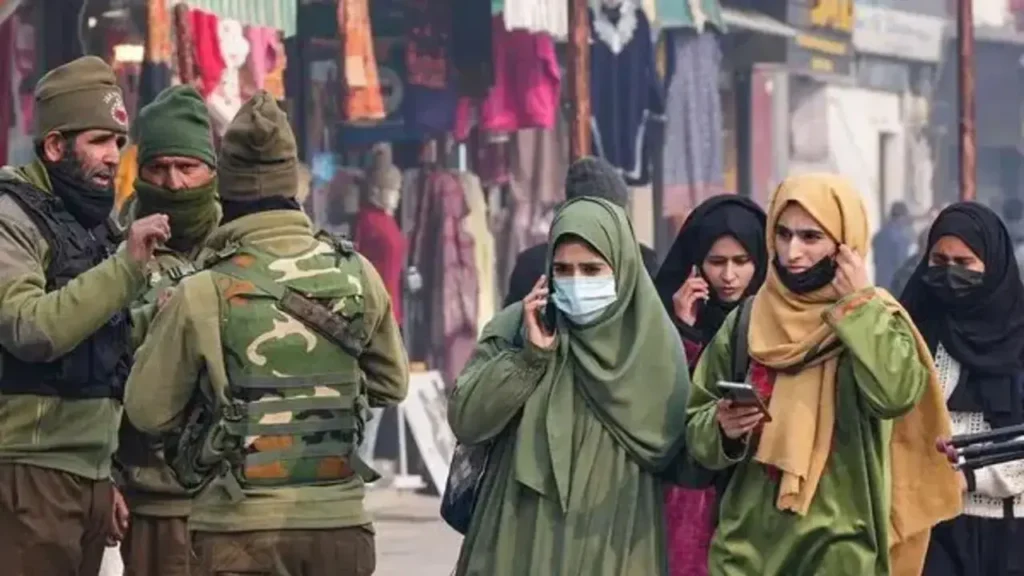PM Modi’s remarks regarding the turnout in Srinagar reflect a sense of contentment and validation regarding the decision on Article 370. The significant participation in the polls signals a positive response from the people of Jammu and Kashmir, showcasing their engagement with the democratic process after the abrogation of Article 370. It indicates a willingness among the population to actively participate in shaping the region’s future, aligning with the government’s vision for development and progress in the newly formed union territories.
The Prime Minister’s satisfaction with the turnout also underscores the importance of democratic representation and inclusivity in the region. By highlighting the successful conduct of polls and the enthusiastic response from voters, PM Modi‘s remarks emphasize the stability and progress achieved after the decision on Article 370. This positive sentiment can further encourage investment, development initiatives, and overall confidence in the region’s future trajectory under the new administrative framework.

Read Also: Stone Pets: The Surprising Obsession Taking South Korea by Storm
The abrogation of the decision on Article 370 from the Indian Constitution in 2019 marked a significant shift in the governance structure of Jammu and Kashmir. This article granted special status to the region, providing it with a considerable degree of autonomy over various matters. However, repealing Article 370 was a strategic decision to integrate Jammu and Kashmir more closely with the rest of India, aligning it with the constitutional framework that applies to other states and union territories. The process involved redefining the “constituent assembly of Jammu and Kashmir” as the “Legislative Assembly,” invoking the President’s rule and passing concurrent resolutions in both houses of Parliament to revoke the article’s provisions.
Simultaneously, the Jammu and Kashmir Re-organisation Act 2019 was enacted, leading to the bifurcation of the region into two union territories: Jammu and Kashmir and Ladakh. This legislative step was designed to streamline governance and a decision on Article 370, enhance development initiatives, and foster better integration of the region with the rest of the country. While the move was met with mixed reactions, it represented a significant constitutional and administrative overhaul to promote stability, development, and inclusivity in the region.
Explosive Debate: Azad and Mufti Clash on Decision on Article 370

In the context of the abrogation of the decision on Article 370, several reasons were cited to justify this decision. First, it aimed at facilitating complete integration and fostering development in Jammu and Kashmir, which was hindered under the previous arrangement. The region’s exploitation by Pakistan for fostering terrorism and separatism also prompted concerns about national security. Additionally, the discriminatory aspects of Article 370, particularly regarding women, Dalits, and marginalized groups, needed addressing. Furthermore, the lack of transparency and accountability in governance and impediments to economic prosperity, such as limited investment and tourism, necessitated reevaluating the constitutional provision.
Notable impacts have been observed since the abrogation. There has been a significant decline in violence, with over a 50% decrease in terrorist incidents and security forces neutralizing hundreds of militants. Economic development has also seen an upswing, marked by increased investment, job creation, and robust Gross State Domestic Product (GSDP) growth. Infrastructure development has been prioritized, leading to the construction of essential facilities like roads, bridges, tunnels, and power lines. Moreover, the tourism sector has witnessed a revival, with a record influx of tourists and improvements in security measures and promotional initiatives. Overall, the move to revoke the decision on Article 370 has had tangible positive effects across various sectors in Jammu and Kashmir.
Regarding the legal perspective, the court’s rulings on Article 370 reinforced its temporary nature, devoid of internal sovereignty for Jammu and Kashmir. The provision served a transitional purpose during the establishment of the Constituent Assembly and aimed to facilitate the region’s integration into the Union during the tumultuous period of the 1947 war. The authority of the Governor (or President under President’s rule) to assume roles of the state legislature has also been upheld, drawing from the legal precedent set by the ‘SR Bommai v Union of India, 1994 ruling, which affirmed the constitutional framework for such circumstances.
To get more out of our exclusive news, Join us on our WhatsApp Channel, Facebook, and Instagram.
















